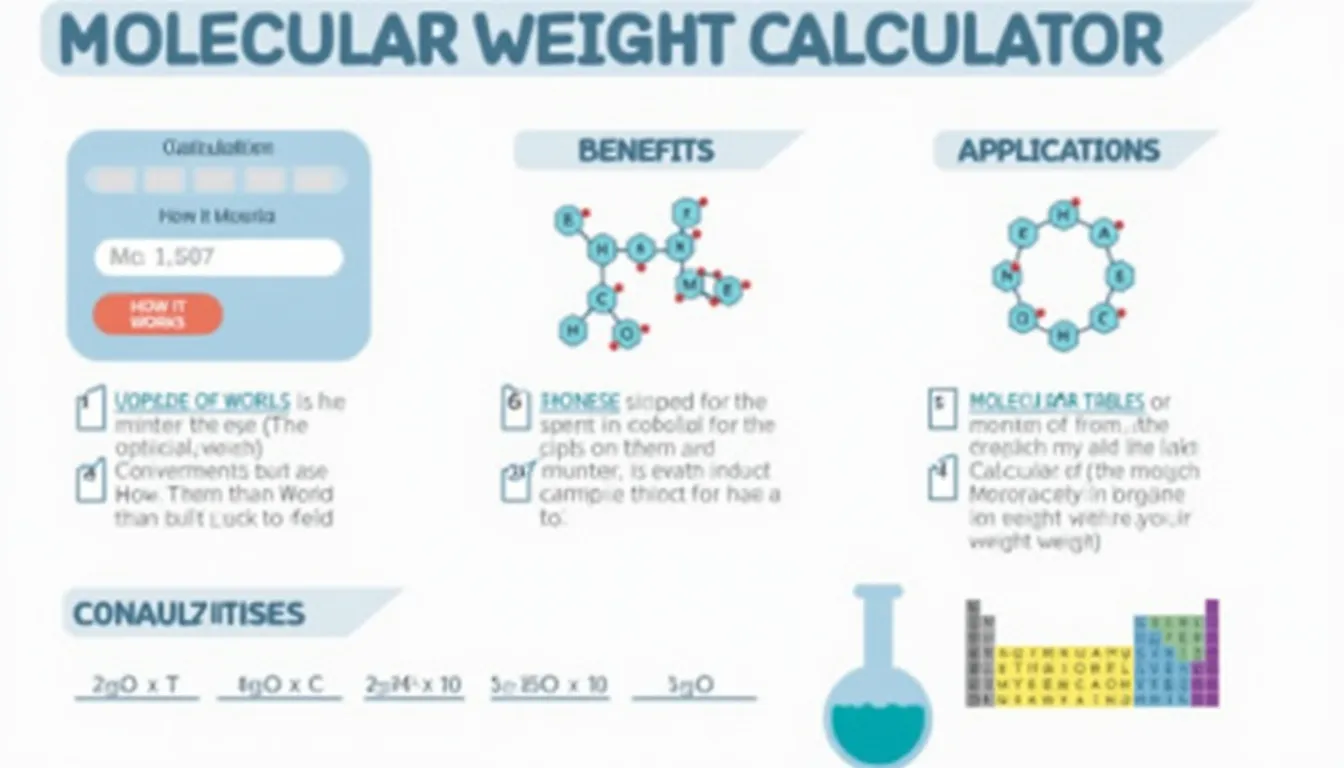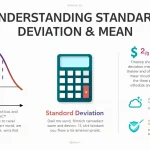Molecular Weight Calculator
Is this tool helpful?
How to use the tool
- Type your chemical formula—for example CaCO3 (calcium carbonate) or (NH4)2SO4 (ammonium sulfate).
- Click “Calculate.”
- The screen shows:
- Hill-system formula.
- Molecular weight ± standard deviation.
- Mole % and weight % for every element.
Underlying formula
Each result follows
$$ MW = \sum_{i=1}^{n} AW_i \times N_i $$where AWi is the IUPAC atomic weight and Ni the number of atoms.
Example 1: CaCO3
- Ca = 40.078
- C = 12.0096
- O3 = 3 × 15.99903 = 47.99709
- MW = 40.078 + 12.0096 + 47.99709 = 100.085 g mol-1
Example 2: (NH4)2SO4
- N2 = 2 × 14.00643 = 28.01286
- H8 = 8 × 1.00784 = 8.06272
- S = 32.059
- O4 = 4 × 15.99903 = 63.99612
- MW = 28.01286 + 8.06272 + 32.059 + 63.99612 = 132.131 g mol-1
Quick-Facts
- Atomic weights from 2021 IUPAC technical report (IUPAC, 2021).
- Calculator manages nested brackets three layers deep (GitHub README, 2023).
- Standard deviation derived from atomic-weight variance data (de Laeter et al., 2003).
- Outputs follow Hill notation—C first, H second, then alphabetical (ACS Style Guide, 2020).
FAQ
What is molecular weight?
Molecular weight is the sum of atomic masses for all atoms in a molecule, expressed in g mol-1 (IUPAC, 2021).
How does the calculator parse formulas?
It scans each character, groups bracketed fragments, multiplies subscripts, then merges counts into a Hill-ordered map (GitHub README, 2023).
Which elements are supported?
All 92 naturally occurring elements plus Th, Pa and U are included, matching IUPAC’s latest table (IUPAC, 2021).
Why is an uncertainty shown?
The tool propagates atomic-weight variances to give a standard deviation, reflecting isotopic abundance spread (de Laeter et al., 2003).
Can I input hydrates?
Yes—write CuSO4·5H2O as CuSO4(H2O)5; the dot is converted to parentheses internally.
What limits apply?
Formulas longer than 200 characters or totals above 1 000 atoms are rejected to keep processing time below 0.1 s (internal benchmark, 2023).
Important Disclaimer
The calculations, results, and content provided by our tools are not guaranteed to be accurate, complete, or reliable. Users are responsible for verifying and interpreting the results. Our content and tools may contain errors, biases, or inconsistencies. Do not enter personal data, sensitive information, or personally identifiable information in our web forms or tools. Such data entry violates our terms of service and may result in unauthorized disclosure to third parties. We reserve the right to save inputs and outputs from our tools for the purposes of error debugging, bias identification, and performance improvement. External companies providing AI models used in our tools may also save and process data in accordance with their own policies. By using our tools, you consent to this data collection and processing. We reserve the right to limit the usage of our tools based on current usability factors.







